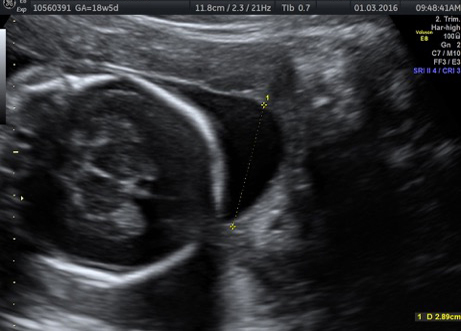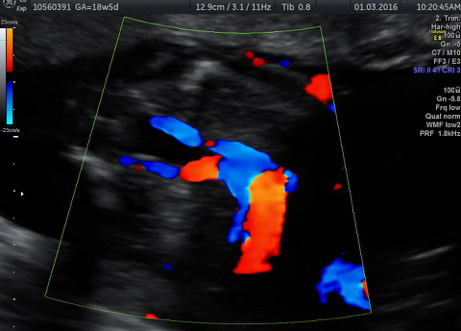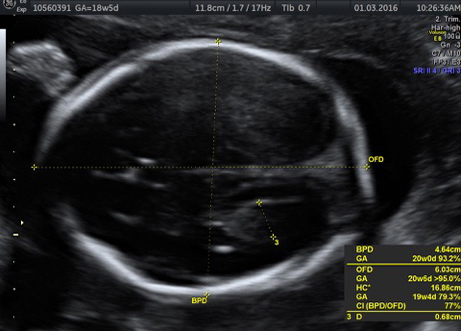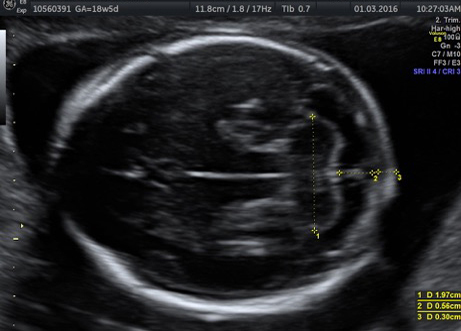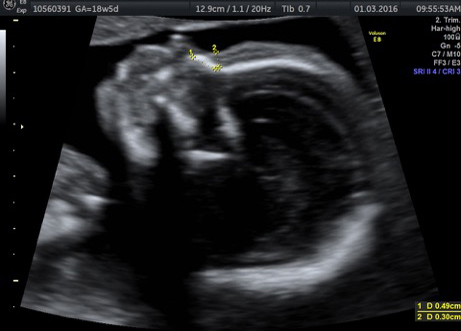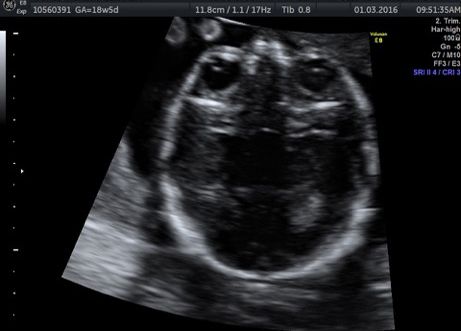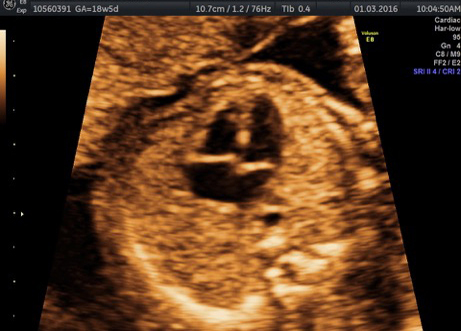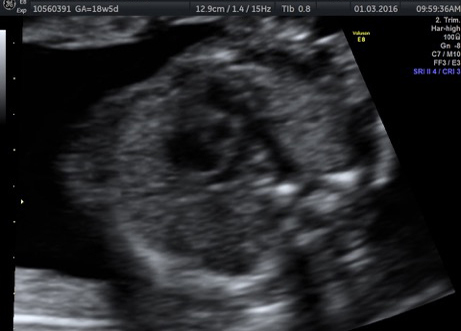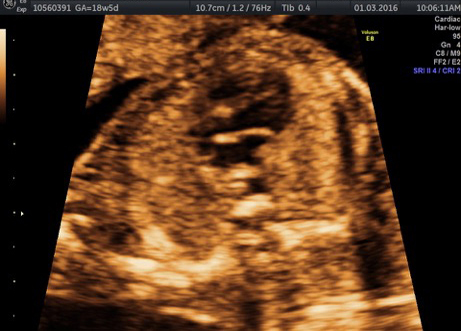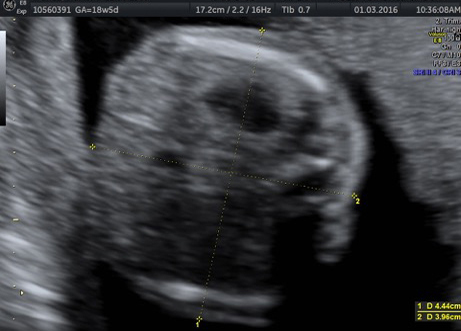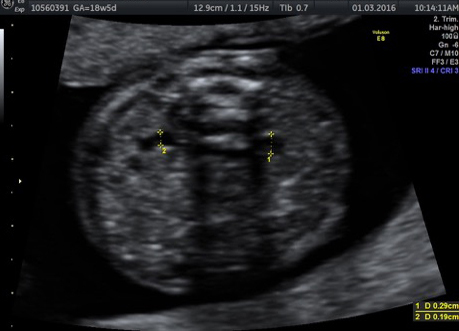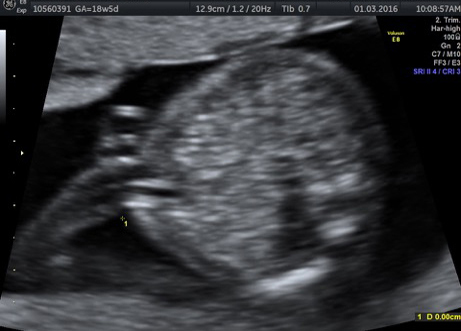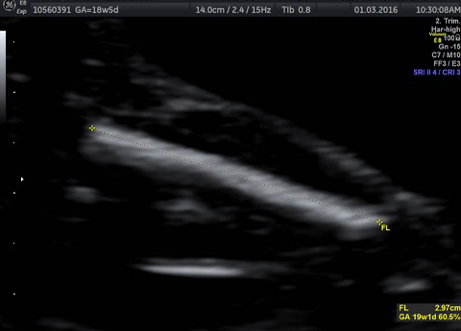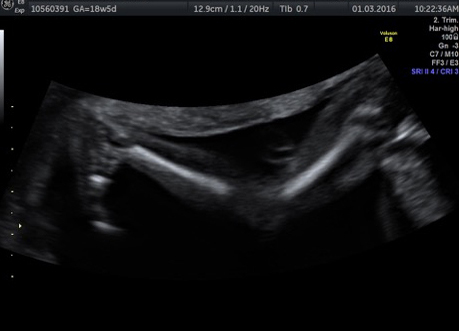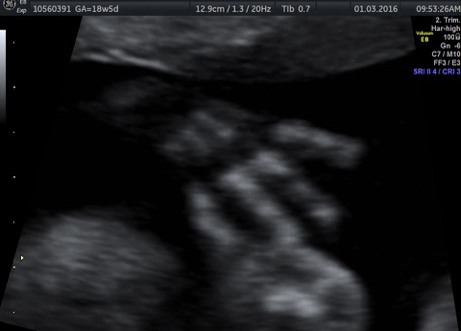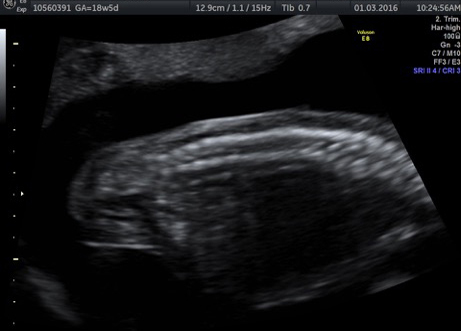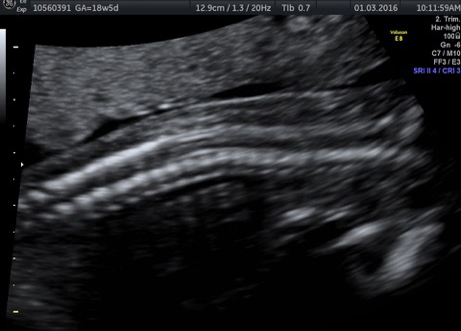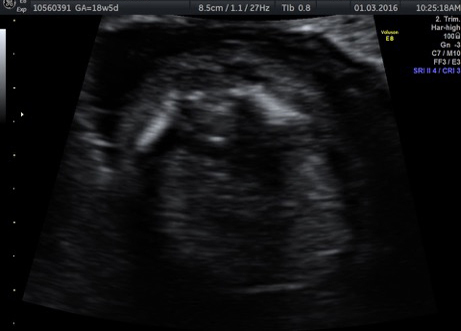Congenital high airway obstruction (CHAOS) is a blockage of the fetus’ airway. It is a rare, but serious, birth defect.
CHAOS may be caused by the absence of or blocking of the larynx (voice box) or trachea (windpipe). Sometimes a cyst in the larynx causes the condition.
While a fetus is developing, the lungs make and exhale some of the amniotic fluid. If the airway is blocked, this fluid can back up. This can cause dangerous problems for the fetus including fluid in the abdomen and enlarged lungs, trachea or bronchial tubes. In severe cases, when the airway it completely or nearly completely blocked, the fetus may develop heart failure, also called hydrops.
CHAOS generally is diagnosed by routine prenatal ultrasound. The fetus may have large lungs that press against its heart, an inverted diaphragm or abnormal breathing. If the doctor suspects CHAOS, a fetal echocardiogram, amniocentesis and other tests will be recommended. The fetus will be monitored closely throughout the pregnancy.
Treatment for CHAOS depends on when it is diagnosed and if hydrops is present. Fetal surgery to eliminate the obstruction may be an option in some cases when the problem is diagnosed early in pregnancy.
The doctor may recommend scheduled cesarean section. If the fetus develops hydrops, early delivery may be necessary.
When a baby has CHAOS, there’s a high risk he will not be able to breathe at birth. In many cases, an EXIT (ex utero intrapartum treatment) surgery is necessary. In this procedure, the baby is removed from the uterus but remains connected to the placenta by the umbilical cord. The surgeon then looks at the airway and inserts a breathing tube. The obstruction is sometimes surgically repaired.
Sometimes, ECMO (extracorporeal membrane oxygenation), also called heart-lung bypass, is needed until the baby stabilizes.
If your baby has CHAOS, it’s important to deliver in a hospital with multidisciplinary care for you and the baby and a high level newborn intensive care unit (NICU). We perform fetal interventions, including fetal surgery, in the state-of-the-art operating facilities at Indraprastha Apollo Hospitals, New Delhi.




